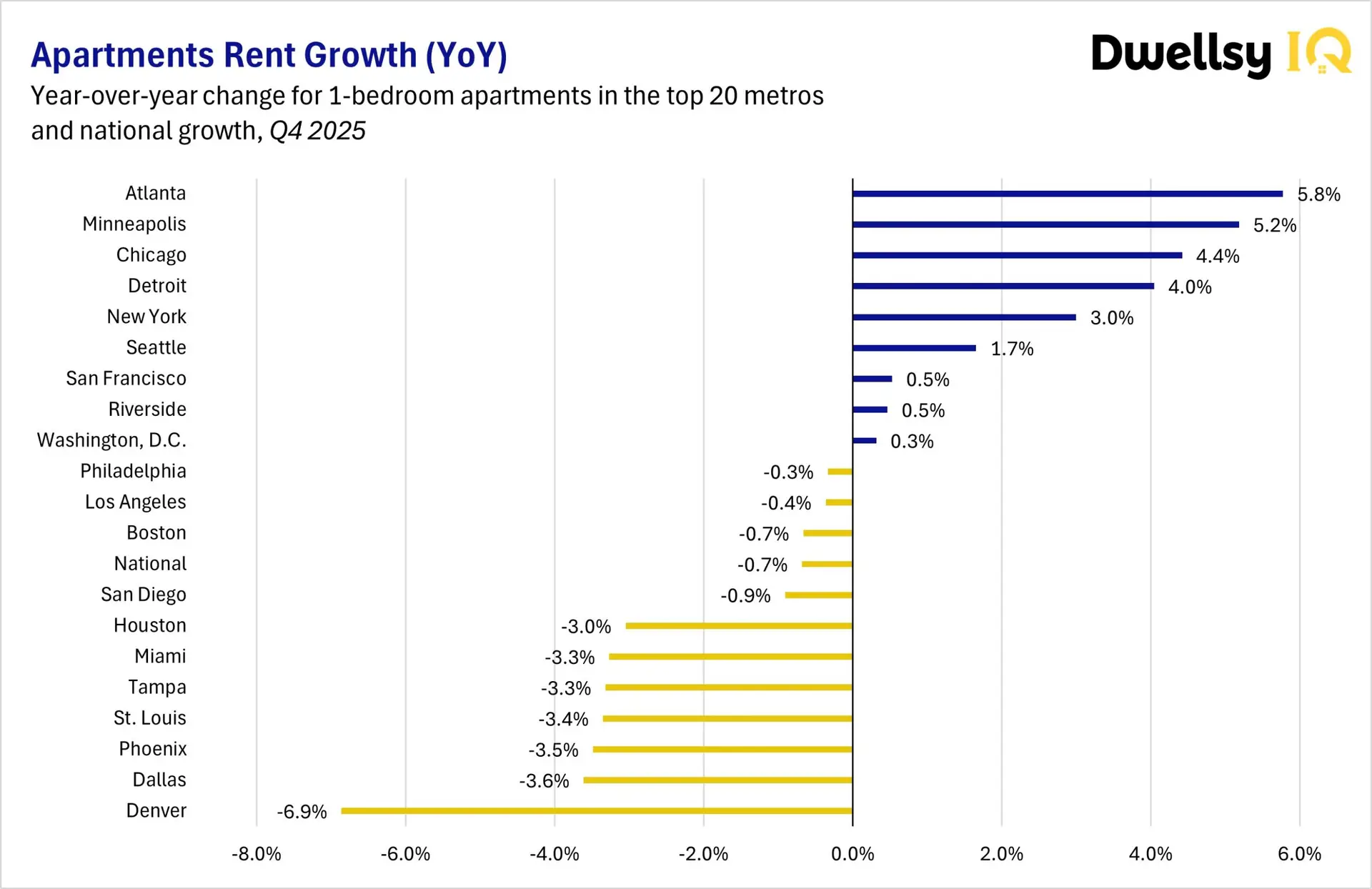A series of high-profile cases—targeting everything from multiple listing services (MLS) and platform policies to algorithmic rent-setting—is painting a clear picture: antitrust and consumer-protection scrutiny in the real estate industry is converging. What began as operational disputes in the late 2010s is now being reframed by regulators and courts as questions about market control, data governance, and competitive fairness. For an industry that has rapidly embraced technology, this shift represents a significant change in the regulatory environment, particularly for proptech companies whose products rely heavily on data aggregation and automation.
The modern antitrust wave in real estate did not materialize overnight, nor was it born solely from lawsuits filed in 2023 or 2024. Its origins trace back nearly a decade, starting with a 2017 event that reshaped the rental landscape and set the stage for today’s regulatory focus. This article reviews the key moments that brought the industry to this point and outlines what this new era of scrutiny may mean for the future of real estate technology.
2020: Real estate’s antitrust warning signs
By 2020, regulatory attention in real estate and proptech had broadened beyond pricing systems. When CoStar Group attempted to acquire RentPath for $588 million, the Federal Trade Commission (FTC) moved to block the deal, arguing that the merger would reduce competition in the online rental advertising market. RentPath was ultimately sold to a different buyer. The episode signaled that consolidation in digital rental marketplaces was now squarely on the radar of federal regulators.
2022: The year proptech’s antitrust crisis went public
The rental pricing issue entered wider public view in mid-October 2022. Investigative reporting focused on RealPage’s revenue-management software and described a pattern in which landlords across multiple markets were using similar algorithmic tools to inform pricing decisions.
According to those reports:
- In certain ZIP codes, 70% or more of apartments were controlled by landlords using the same RealPage algorithm.
- The software allegedly recommended rent hikes even when vacancies were high, at times encouraging lower occupancy to maintain higher price levels.
- RealPage was described as aggregating non-public leasing data provided by multiple property management firms, including firms that operate in the same markets.
- Landlords, in turn, were portrayed as relying heavily on algorithmic recommendations rather than setting prices independently.
These publications prompted a wave of legal and regulatory responses. Within weeks, renters filed multiple class-action lawsuits. Members of Congress requested further investigation, and the DOJ opened a federal antitrust probe. The period from late 2022 to early 2023 marked a turning point, as algorithm-driven pricing moved from being viewed as a niche operational tool to a subject of national antitrust and policy debate.
2023: Consolidation of private litigation and increased regulatory signaling
Legal activity intensified in 2023. By April, more than 40 class-action lawsuits related to RealPage and participating landlords were consolidated into a single multidistrict litigation (MDL) in Tennessee, creating a unified national case that alleged a broad price-fixing scheme affecting millions of apartments.
Later in the year, public enforcement actions offered clearer insight into regulators’ general approach. In November, the Office of the Attorney General for the District of Columbia filed a case outlining concerns about how centralized pricing tools may affect competitive dynamics. Around the same time, the DOJ and FTC issued a joint statement clarifying that algorithmic conduct would be evaluated under established antitrust principles. Together, these developments signaled that both private plaintiffs and federal agencies were examining how data-sharing and software-driven pricing practices fit within existing competition laws.
2024: Expansion of enforcement activity into pricing, fees, and platform arrangements
In 2024, regulatory activity broadened beyond rental pricing tools to encompass a wider set of practices in the housing and rental markets. Early in the year, Arizona filed a state-level enforcement action examining the role of pricing software in local rent trends. Later, federal regulators brought actions in multiple areas of the industry.
A major development followed in August, when the DOJ—joined by eight states—filed a federal complaint in the RealPage matter. The filing focused on how the company’s pricing tools and data practices aligned with antitrust standards, outlining questions related to data use, information exchange, and the structure of software-driven pricing recommendations.
In September, federal regulators brought actions in additional areas of the rental and advertising markets. The FTC filed a case against Invitation Homes, the largest U.S. single-family rental operator, alleging issues related to fee disclosures, security-deposit practices, and eviction processes. That same month, the FTC filed suit against Zillow and Redfin, focusing on an agreement the agency alleged had implications for competition in rental advertising markets.
2025: A cascade of consequences
By 2025, enforcement actions and settlements linked to these issues had multiplied. Key developments included:
January: Cortland, a major landlord, reached a settlement with the DOJ and agreed to discontinue its use of RealPage’s software.
April: Washington State filed suit, estimating that approximately 800,000 leases in the state had been affected. New Jersey followed with its own action, characterizing RealPage and certain landlords as a “rent-setting cartel” in its complaint.
June: The District of Columbia secured a settlement that barred a 9,000-unit landlord from using any rent-setting software.
August: Greystar, the nation’s largest property manager, entered into a settlement with the DOJ that prohibited it from using pricing tools based on competitor data.
September–October: RealPage reached its first state-level settlement in Nevada, and 26 landlords agreed to MDL settlements totaling $142 million.
November: Nine states announced a coordinated $7 million settlement with Greystar that included a range of behavioral commitments.
Over the same period, several cities—including Philadelphia, Minneapolis, and San Francisco—adopted local measures to restrict or ban certain algorithmic rent-setting tools. Taken together, these actions show how a 2017 merger has evolved into a complex set of antitrust, consumer-protection, and policy interventions in the rental market.
Platform governance and listing visibility become part of the enforcement landscape
In parallel with rental pricing matters, regulators also examined issues related to platform rules, listing visibility, and rental advertising. Several disputes and enforcement actions focused on how digital marketplaces structure access to listings and advertising inventory, and how those structures may influence competitive conditions.
One area of attention involved the timing and publication of listings. A dispute between Zillow and Chicago’s MLS (MRED) raised questions about how listing visibility is determined and what obligations platforms and MLSs have when publishing new homes for sale. Compass later filed a federal lawsuit challenging Zillow’s one-day listing rule, arguing that the requirement affected how sellers and brokers could manage listing timelines.
Regulators also evaluated platform agreements in the rental advertising sector. In 2024, the FTC filed suit against Zillow and Redfin, alleging that an agreement between the companies had implications for competition in rental advertising markets by affecting how rental listings were placed across online platforms.
Together, these actions broadened the regulatory conversation beyond pricing tools to include platform governance more generally—such as listing rules, advertising arrangements, and the mechanisms through which visibility is allocated. As regulators assess how information is shared, accessed, and used across real estate markets, questions that were once treated as technical or operational details are now being evaluated for their competitive and consumer impacts. This expanding focus on data governance, transparency, and the sources of information that underpin market decisions places renewed attention on how companies collect, structure, and rely on data—an important distinction between systems built on non-public, proprietary inputs and those rooted in publicly available, independently verifiable information.
How antitrust regulators now view real estate and proptech
Viewed across these cases, a set of consistent themes has begun to shape how regulators assess both established firms and newer proptech platforms. Rather than focusing on any single lawsuit or enforcement action, agencies are increasingly asking a series of broader questions about how real estate technology operates:
1. How is non-public information collected, used, and shared?
Regulators are examining the governance of competitively sensitive data, including how it is aggregated and whether its use influences market behavior.
2. Are market participants making independent decisions?
Whether in pricing, listing workflows, or management practices, agencies are evaluating the extent to which firms’ choices remain meaningfully independent.
3. How transparent are the systems shaping market interactions?
Questions now extend to the auditability of algorithms, platform rules, and marketplace structures—how easily they can be reviewed and understood by regulators and users.
4. Do platform rules and data pipelines allow for competitive access?
Listing requirements, visibility policies, and advertising arrangements are being reviewed for their potential to impact smaller firms or new entrants.
5. How do these systems affect consumers?
Fees, disclosures, advertising options, and the clarity of information provided to renters and property owners are central to the consumer-protection lens.
These questions show that real estate technology is being evaluated much like other data-intensive industries where competition, consumer protection, and platform design increasingly converge.
How these developments may affect data buyers
The current enforcement environment does not only affect platforms, landlords, or software providers—it also has implications for the organizations that buy and rely on real estate data. As regulators examine how information is collected, shared, and used, data buyers are beginning to reevaluate the safeguards and sources underpinning their own analytics, pricing models, and investment decisions.
Several practical questions are emerging for data purchasers:
1. What types of data are being used—public, proprietary, or non-public competitive information?
Regulators’ focus on data-sharing practices has highlighted the differences between datasets built from public, independently verifiable sources and those derived from private or competitively sensitive inputs.
2. How transparent are the data pipelines behind third-party products?
Buyers increasingly want clarity around how data is gathered, cleaned, and structured, and whether those processes align with evolving compliance expectations.
3. Are vendors able to demonstrate responsible governance and auditability?
As enforcement actions reference data aggregation and algorithmic design, purchasers are prioritizing partners who can document governance practices, consent structures, and data provenance.
4. How resilient are analytics or pricing models to changes in regulatory rules?
If certain forms of non-public or pooled competitive data become restricted, organizations dependent on those inputs may need to recalibrate forecasting, valuation, or underwriting systems.
These shifts mean that compliance, transparency, and data-origin clarity are becoming part of the evaluation criteria for data buyers. In this environment, solutions built on publicly available, non-scraped, independently verifiable data are likely to gain importance—not because regulators mandate them, but because buyers increasingly view them as lower-risk foundations for decision-making.
What comes next for real estate technology
The developments from 2017 through 2025 represent a transition from limited oversight to a more structured regulatory environment. Pricing algorithms, listing pipelines, advertising partnerships, and fee disclosures are now areas of active review. Looking ahead, the industry is likely to see:
- Clearer standards for acceptable data-sharing practices, including restrictions on certain forms of non-public competitive data.
- More explicit expectations around algorithmic transparency, especially for systems that influence pricing, visibility, or consumer choice.
- Heightened oversight of platform environments, including agreements that shape how listings are displayed or how advertising is sold.
- Closer coordination between antitrust and consumer-protection authorities, reflecting the interconnected nature of modern real estate marketplaces.
Real estate technology is entering a phase where innovation and regulation will increasingly develop in parallel. Companies that adapt early—by strengthening data governance, improving transparency, and aligning product design with emerging expectations—will be better positioned to navigate this environment and continue contributing to the evolution of the industry.
Sources: Pro Publica, Office of the Attorney General (Columbia), Office of the Attorney General (Washington), Federal Trade Comission, Multifamily Dive, American Bar, CRE Daily, Justice.gov, Private Equity Stakeholder Project, Cohen Milstein, Reuters, Ap News, Housing Wire



